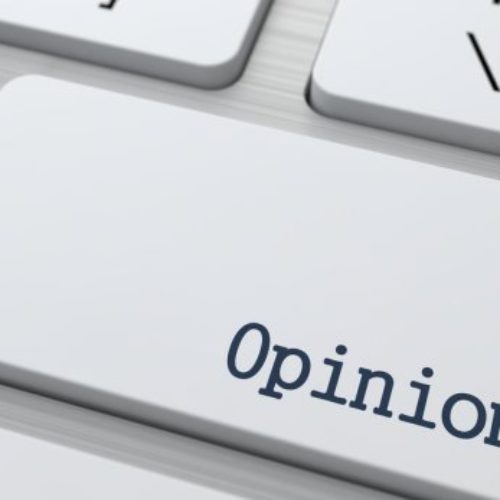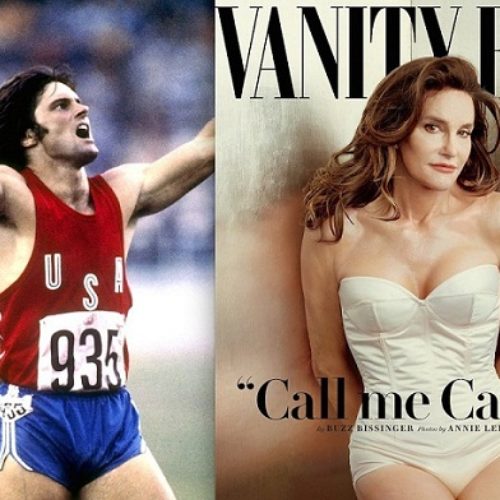Opinion: After Jussie Smollett, Will Real Victims of Anti-LGBT Hate Crimes Be Heard?
Jussie Smollett just made it that much harder for the United States to have an honest conversation about anti-LGBT violence. What’s especially painful is how urgent that conversation remains.
On Wednesday evening, the Empire actor was charged with felony disorderly conduct for allegedly filing a false police report. The openly gay actor had claimed in late January that two men attacked him late at night on a downtown Chicago street, yelled racist and homophobic slurs, poured bleach over his body, and wrapped a rope around his neck. In a follow-up interview with police, Smollett claimed that the two men shouted “MAGA country”—a reference to President Trump’s 2016 campaign slogan.
Despite mounting questions about the veracity of Smollett’s account, it wasn’t until this Saturday that the Chicago Police Department publicly confirmed that Smollett was no longer being investigated as a victim but as a suspect in an investigation as to whether he had staged the attack. And now, the charge has been filed. It’s not the last step by far—but it does mean that police could not substantiate Smollett’s claims.
Now we are left to reckon with the gravity of what Smollett has allegedly done.
For one night—if that—it seemed like public attention would turn to the persistent problem of anti-LGBT violence in the United States. Celebrities, LGBT advocates, and politicians—including multiple presidential candidates—condemned the attack. President Trump called the alleged assault “horrible” and said it “doesn’t get worse.” But as more details came out of the investigation, the less believable Smollett’s account became. And ultimately, the person who seemed poised to spark an important national dialogue about homophobic violence was charged with lying to police.
The charge against Smollett hasn’t changed the fact that the number of anti-LGBT criminal offenses reported to the FBI—and the number of reported hate crimes overall—has risen. Nor has it changed the fact that most reported hate crimes are racially motivated. But it has left us with a discourse around this violence that is even more broken than it was before.
Those who weaponize hate crime hoaxes to cast automatic doubt on all victims of racist and anti-LGBT violence have just gotten a brand-new Exhibit A—and one that dominated national headlines for a month. If it’s true that Smollett staged this attack, he will have made it all the more challenging for the next actual victim of such violence to be heard and believed. The surrounding furor could even deter victims from reporting. That kind of harm is concrete and tangible. Real people will suffer.
Meanwhile, those who were sympathetic to Smollett—and who were inclined to believe his account based on the initial police report—are stuck with the challenge of walking back previous statements without dismissing either the reality of anti-LGBT violence in this country or the Trump administration’s record of pursuing anti-LGBT policy.
At first, for example, Senator Kamala Harris said that what happened to Smollett was “an attempted modern-day lynching.” Later, she said that “the facts are still unfolding.” Now, Harris—like many LGBT advocates and allies—is faced with the near-impossible attack of acknowledging the shift in the Smollett case in a heated media environment. LGBT advocacy groups are in a similar boat.
Certainly, there are loud anti-LGBT voices on social media who wanted the Smollett story to be a hoax from the beginning, not because they were concerned in good faith about the impact of a false report, but because they wanted to deny the existence of such violence altogether. Those people will never be satisfied by retractions, or by thoughtful revisiting of earlier reportage that was based on the information available at the time.
But for those who are capable of having nuanced, good-faith conversations about the charge against Smollett, this should ideally be a moment for reflection on the resources the actor has allegedly wasted—and the very real violence that his case distracts us from.
For example, I am thinking about a day in February 2016, when Anthony Gooden and his boyfriend Marquez Tolbert woke up to the terror of boiling water being poured over their bodies. Holding the pot of water was Gooden’s mother’s boyfriend, who told police said, “It was just a little hot water.”
“A little hot water” that sent the gay couple to the hospital with severe burns. One of the men was in a coma for two weeks. Police confirmed the details—and the attacker was tried, then sentenced to 40 years in prison, as The Washington Post later reported.
Despite write-ups in a few major newspapers, the incident didn’t capture national attention for very long. Senators didn’t drop everything to post about it on social media. And yet it was a horrifyingly, shockingly real crime—one of hundreds of reported anti-LGBT criminal offenses that happen every year, according to local law enforcement agencies that report to the FBI.
In a country where the humanity of LGBT people and people of color is already seen as up for debate, those who fake hate crimes do a disservice to actual victims like Gooden and Tolbert. We should be able to talk about this quotidian, everyday anti-LGBT violence—the stuff that happens to people whose names you’ve never heard of—without a high-profile celebrity incident to fuel the conversation.
That is the difficult task ahead of us now. Those who used the Smollett attack to score points against President Trump don’t have to walk back their fervent opposition to the administration’s anti-LGBT policies—and their harmful real-world effects—to revise earlier statements in light of new information. And those who would use this felony charge against Smollett to score points against those who believed the actor need to pause and ask themselves if they’re actually concerned about the impact of a false report on marginalized groups like LGBT people or people of color—because if they are, they should be devastated by the latest Smollett news, not gleeful about it.
We need to keep talking about anti-LGBT violence in this country. It was already had to have that conversation before—and it’s certainly not any easier now. But we have to try.
[This piece was originally published on The Daily Beast]
About author
You might also like
When Onyx Godwin Introduced The Gay Talk On Ali Baba’s Timeline
Call Onyx Godwin whatever you like, but that dude has more balls than most Nigerian LGBT people I know. How many of y’all can bring the heat to a self-professed
Petition calls for Caitlyn Jenner’s Olympic medals to be taken away
A petition has been started asking the Olympic Committee to remove Caitlyn Jenner’s medals. She won a gold medal in the men’s decathlon in the 1976 Olympics, as well as
How An Unlawful Arrest Led To Uchenna Samuel Noble Breaking The Silence
EDITOR’S WORD: When I learned of what happened to the Delta-based human rights activist, Uchenna Samuel Noble, and we talked about the story getting shared on Kito Diaries, he said










3 Comments
Bee
February 21, 19:03This is so apt. I screamed when I resumed social media from last week to find this.
MitchieRichie
February 22, 08:01Jussie dealt us a heavy blow,worldwide. Homophobic victims would rather hide than voice out. As seen from nairaland yesterday, they think we lot are attention seeking bitches. Jussie just made our fight a bit harder.
Pink Panther
February 22, 08:15I am determinedly staying away from any Nigerian mainstream site where Jussie Smollett’s gist is posted. Because I know the homophobes will be having the kind of field day that’ll burn my soul with deep resentment.